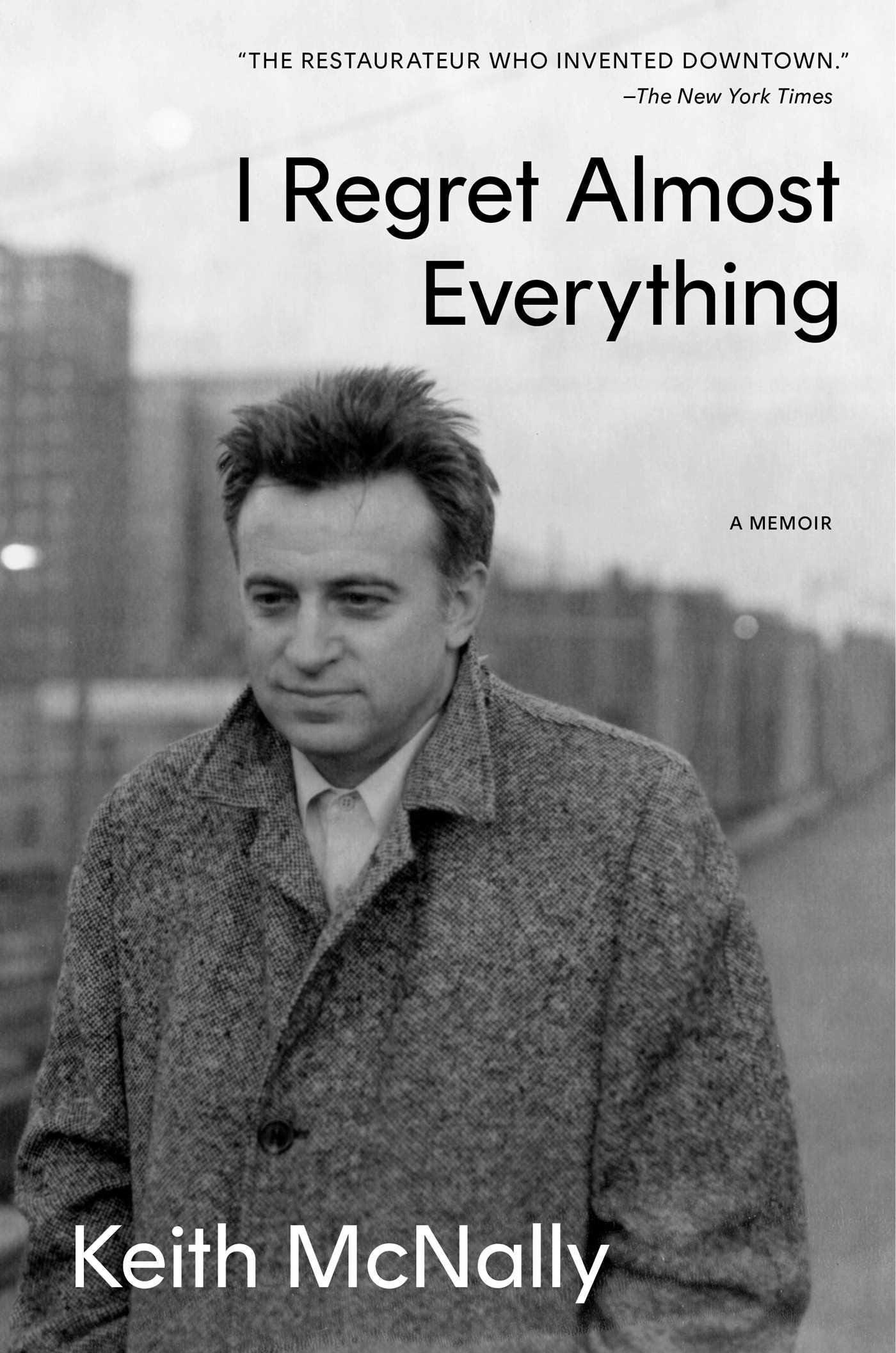Good afternoon!
I haven’t had a lot of energy to read lately with my move, since all of my free time goes to reorganizing and unpacking. This past week, I picked up a recently published memoir by Keith McNally, one of New York’s most well-known restaurateurs. I was pretty underwhelmed, but let’s get into it!
read📖→
I Regret Almost Everything by Keith McNally
I Regret Almost Everything is a memoir by the man behind some of New York’s most iconic restaurants, including Balthazar, Pastis, Minetta Tavern, Morandi, The Odeon, and Cafe Luxembourg.
Overview: McNally opens his memoir by recalling his devastating stroke in late 2016. As he writes, “the clock stopped.” The stroke and his recovery become an anchor for the book, as he recalls events from his childhood and later career in the New York restaurant business.
McNally grew up in the East End of London. His father was a docker and an amateur boxer, and his parents had an unhappy marriage. McNally’s childhood was marked by dysfunction. As he writes, “Living under the threat of violence is worse than violence itself.”
McNally skipped college and began acting on the West End. He briefly had a relationship with the playwright Alan Bennett before moving to New York at age 24.
In New York, McNally took a job as a busboy at Serendipity in Midtown East and then began working as an oyster shucker at a downtown restaurant called One Fifth, which Patti Smith and photographer Robert Mallpethorpe frequented. He worked his way up to maître d’ and learned early that charm goes farther in New York than talent. As McNally recounts: “It seemed that my entire life in New York was based on deception. I’d flourished as a maître d’ not through hard work but as a result of an eagerness to tailor my character—Zelig-like—to fit the customer.”
He then branched out to start his own restaurant, The Odeon, with his then-girlfriend and later wife, Lynn Wagenknecht, and his brother, Brian. While initially poorly reviewed in The New York Times, “The Odeon has been packed solid every night for almost half a century,” McNally writes. McNally befriended Lorne Michaels, of “Saturday Night Live” fame, and Anna Wintour from Vogue.
McNally opened several more establishments, including Café Luxembourg in 1983, Nell’s nightclub in 1986, Balthazar in 1997, and Pastis in 1999. McNally also recounts his failures, like Pulino’s and Augustine. McNally weaves stories about his family life into the narrative. During this period, he and his first wife had three children before they divorced. McNally remarried, and he and his second wife, Alina, had two other children.
Opinion: 1980s New York is having a bit of a moment right now. Keith McNally, Barry Diller, and Graydon Carter have all recently published memoirs—you can read some background information in this New York Magazine article, “They Built This City.”
The 1980s and 1990s New York scene fascinates me, and McNally undoubtedly has a great story to tell here. Unfortunately, this book didn’t work for me. Why? There were just too many issues with his perspective, the narrative structure, and writing style.
The title of the book is I Regret Almost Everything. He really does. At the beginning of the memoir, he states: “Autobiography is only to be trusted when it reveals something disgraceful. A man who gives a good account of himself is probably lying, since any life when viewed from the inside is simply a series of defeats.”
While I tend to agree with McNally, in this case, he is so overly self-critical and self-depracating that it became exhausting for me as a reader. McNally has an uncomfortable relationship with success. He threw his first James Beard Award in the trash and hates the term “restaurateur.” As he puts it, “Not only am I saddled with a first name I can’t stand, I chose a profession with a name I dislike even more: restaurateur. Does a plumber call himself a plombier? Trust the French to come up with the most pretentious word in the dictionary. And just to make it extra difficult for us to pronounce, the bastards went and took the n out of the word.”
The book is more or less shaped by his countless dislikes—weddings, standing ovations (okay, same), idioms (lazy), clichés, dinner parties, artless walls, Halloween, Patti Smith (rude to servers), urinals, and direct sunlight. Aversions can be funny (see Seinfeld), but they crowded out his story for me. He has a relentless desire to succeed and improve on his work. He also has naturally good taste in food and interiors, but we don’t get a lot of insight into his creative process.
McNally frames the memoir around his stroke, and the book reads as part health crisis memoir, part family memoir, and part career memoir. This type of framing can be effective, but I got lost in the loose narrative structure. He revisits his memories in a nonlinear fashion, and I struggled to track the general chronology of his life. While McNally abhors idioms, he loves sweeping declarative statements, which tend to be inconsistent.
The writing style can often make up for these types of shortcomings, but there’s nothing exceptional about the writing here.
Overall: While I wouldn’t recommend reading this memoir, I am still a fan of McNally and his restaurants! If you’re interested in his life and career, you should check out a profile or interview with McNally instead.
Rating: 2.8/5
Genre: Nonfiction (Memoir)
Page count: 320 pages
Audio: 11 hours 3 minutes
consumed 🎬🎧🗞️→
I just started watching “Stick”! Owen Wilson plays a washed-up former professional golfer who starts coaching a young golf prodigy.
cooked 🍳→







